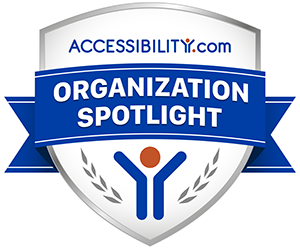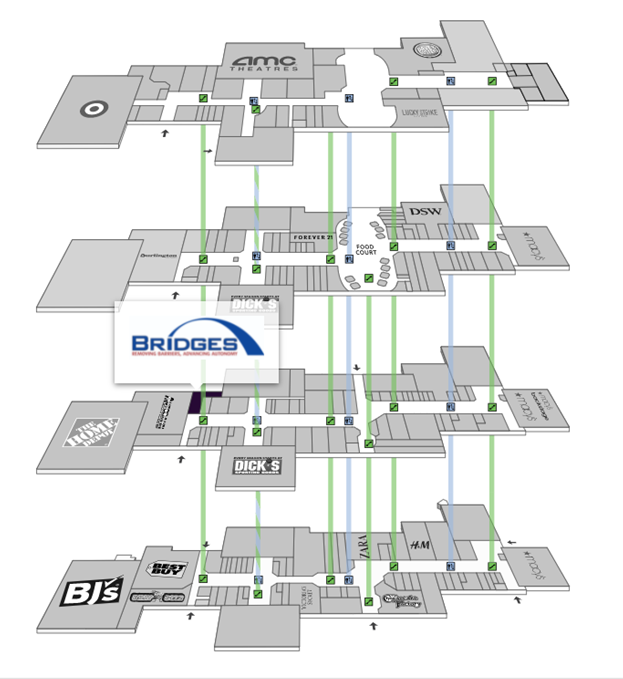National Disability Voter Registration Week: July 15 – 19, 2019
The REV UP (Register! Educate! Vote! Use your Power!) Campaign has designated July 15 – 19, 2019 – National Disability Voter Registration Week. REV UP was launched by the American Association of People with Disabilities (AAPD) in 2016 as a nonpartisan initiative that coordinates with disability organizations to increase the disability community’s political power while also engaging candidates and the media on disability issues.
As reported by Abigail Abrams in TIME Magazine,[1] voter turnout surged among people with disabilities last year and activists want to make sure it continues in 2020 when disabled voters could potentially be a key voting bloc.
Last year’s midterms saw overall historic turnout with a 49.3% increase in turnout for people with disabilities. This was a reversal of a previous trend of declining turnout. Though this increased turnout for disabled voters was significant, there is still a 4.7 point gap in turnout for people with disabilities and those without. If people with disabilities voted at the same rate as those without, there would be 2.35 million more voters. Traditionally, disability voter turnout has been low due to several factors: inaccessible polling places, lack of outreach by politicians, and feelings of marginalization.
Sometimes people with disabilities face difficulty with obtaining transportation to vote. New York State Election Law requires polling places to be accessible by public transportation. In addition, many taxi companies offer discounted or free transportation on Election Day. Call your taxi company and inquire. Some medical transportation companies offer transportation to vote. Carpool Vote is a service that matches available drivers with individuals who need a ride to vote. Visit http://carpoolvote.com/ to schedule a ride. For help using Carpool Vote, call or SMS: 540-656-9388.
Disability advocacy groups like REV UP are tackling these issues and hoping to build on the disability community’s energy to make their presence known in the next election cycle. AAPD President Helena Berger would like to see people with disabilities grow into a voting bloc like white, suburban women, black women, or older Americans who traditionally vote in high numbers.
This year’s disability voter registration week, July 15 – 19, features events across the country, as well as online, to ensure people with disabilities can participate. The goal of these efforts is to convince people with disabilities that their votes matter. The 2020 election cycle has a mixed start. Most 2020 campaign websites are not yet fully accessible. Some candidates have referenced people with disabilities in their specific proposals yet most often, disabilities are not brought up at all. Most candidates do not recognize the disability community as a community with a history or a culture.
Social media has been an effective tool for people with mobility impairments and has been important for voter turnout, too. Disability advocates are still working to overcome voting barriers and obstacles that exist for people with disabilities. The National Council on Independent Living (NCIL) has issued Get Out the Vote guides and information about ballot accessibility in the past, and has just launched a national campaign training program for people with disabilities.
The disability community is in a better place than it was a few years ago; however, we still need more serious commitments from politicians and election officials for 2020. For people with disabilities, change requires not only tackling the barriers to voting, but convincing the political world to see us as fully empowered. With over 34 million eligible voters, the disability community has the capacity to impact policies and elections.
Disability Rights New York has issued a statement about Voters with Disabilities’ Rights
- Your vote matters.
- You have the right to vote independently and privately.
- You have the right to get help with voting from a person of your choosing.
- Only a judge can make the decision that someone is not competent to vote.
- You have the right to vote by absentee ballot.
- You have the right to an accessible polling place.
- You have the right to use a Ballot Marking Device.
- It’s easy to register! Call 1-800-FOR-VOTE or visit elections.ny.gov
- You must show up at the right polling place.
- You don’t need a government-issued ID to vote.
- You have the right to a provisional ballot.
- You have a right to make informed voting decisions.
- You have the right to file complaints about accessibility violations or other voting related problems.
[1] Why Disabled Voters Could Be A Key Voting Bloc In 2020 | Time




